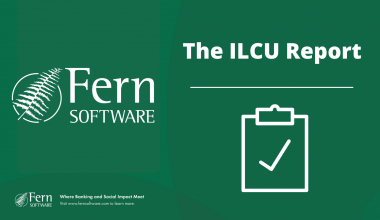First Step Towards Sustainable Growth
Financial inclusion – the access to useful and affordable financial services that meet basic needs for all, including transactions, savings, credit and insurance – as simple as it seems, is identified as a key enabler for 7 of the 17 Sustainable Development Goals to achieve a more sustainable future for all.
While progress has been made in recent years due to the emergence of FinTech platforms to overcome the hurdles faced by traditional banking systems, there are still gaps to full financial inclusion – such as a more robust and connected business model that covers the basic needs of transactions, savings, credit, and insurance, to reach the expanding global population digitally.
Recognizing the importance of financial inclusion, many impactful dialogues have been held, such as the Indigenous Prosperity Forum organized by the National Aboriginal Capital Corporations Association (NACCA), with a network of more than 50 Indigenous Financial Institutions (IFIs) across Canada that provided more than $3.2 billion to support economic development for 50,000 Small and Medium Enterprises (SMEs) across Canada. Many financial institutions were encouraged to develop services that reduce financial barriers and promote thriving, prosperous businesses with equitable access to capital and care.
Fintech – A Cornerstone of Financial Inclusion
The impact of FinTech on financial inclusion is profound in reducing the barriers that prevent individuals from participating in financial services to improve their lives in various regions.
Africa: The percentage of Kenyan population over 15 years old with access to a financial services provider increased from 42% in 2011 to 79% in 2021, with 69% possessing a mobile money account, and 78% having made digital payments. The leading FinTech hubs in Africa are also leading the road to financial inclusion, on par with the global average of 76%.
United States: 5.4% of US households were unbanked in 2019 – with no checking or savings account at a bank or credit union. Reasons cited include the inability to meet minimum balance requirements (48.9%), lack of trust in banks (36.3%), inconvenient bank locations or hours (27.1%). These challenges can be alleviated with the delivery of financial services through technological innovations.
Cambodia: The Royal Government of Cambodia, with support from the United Nations Capital Development Fund (UNCDF), aims to increase the financial inclusion levels from the existing 59% to 70% in 2025 through the National Financial Inclusion Strategy. A significant part of the plan includes financial inclusion of farmers in the rural areas, as they often struggle with financial management. As such, the traditional loan and saving products are unsuitable for their lifestyles. With products like Abacus, they will be able to take up loans with terms that can be adjusted, so that they can be repaid at harvest time.
Solutions to Support Financial Inclusion
Financial inclusion extends beyond having a bank account; it encompasses a wider range of services including transactions, savings, credit and insurance. For SMEs, financial inclusion facilitates growth, job creation, and overall economic development. To facilitate financial inclusion for both individuals and businesses, financial institutions with FinTech solutions can come in to bridge the gaps of traditional banks that often find it economically unviable to operate in more remote areas.
For instance, Fern Software provides a comprehensive suite of tailored solutions designed to enhance the reach and efficiency of financial services, even in the underserved markets. Abacus by Fern Software has been designed to be fully multi-lingual, supporting languages including Spanish, Indonesian, and Arabic – these languages are essential in aiding Microfinance Institutions (MFIs) in developing countries such as Indonesia. With a customer-centric process in mind, Abacus is designed to work offline in locations with little or no connectivity through the AbacusField app that can operate offline for extended periods of time, with a wide range of features including loan application, repayment, savings, withdrawals, and more – enabling users with a truly branchless banking service even in the most rural areas.
Paving the Way for a Sustainable Future
Financial inclusion is a vital driver of economic empowerment and social development. With a more inclusive financial landscape where individuals have the opportunity to thrive, development truly becomes sustainable. To find out more about enabling accessible and affordable financial services for your community, reach out to Fern Software today.






